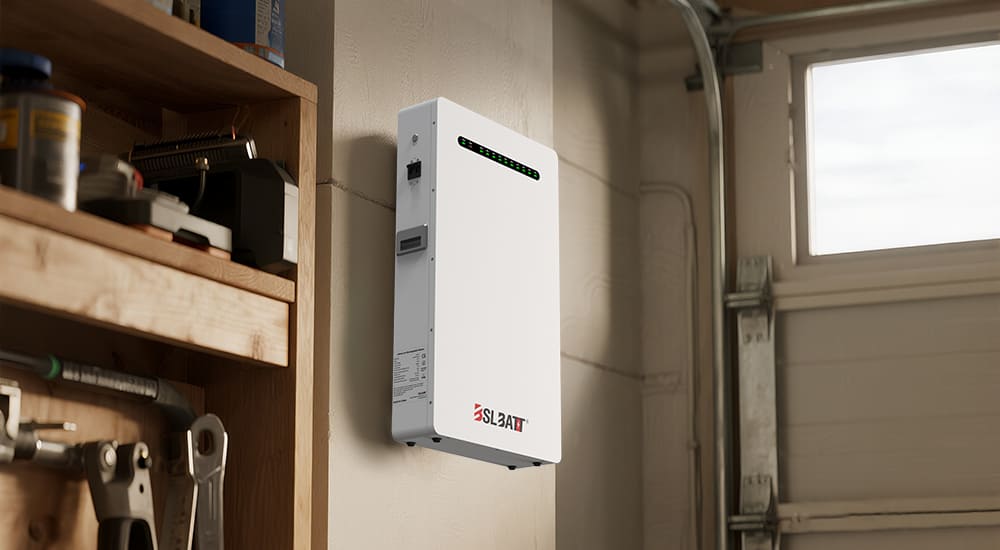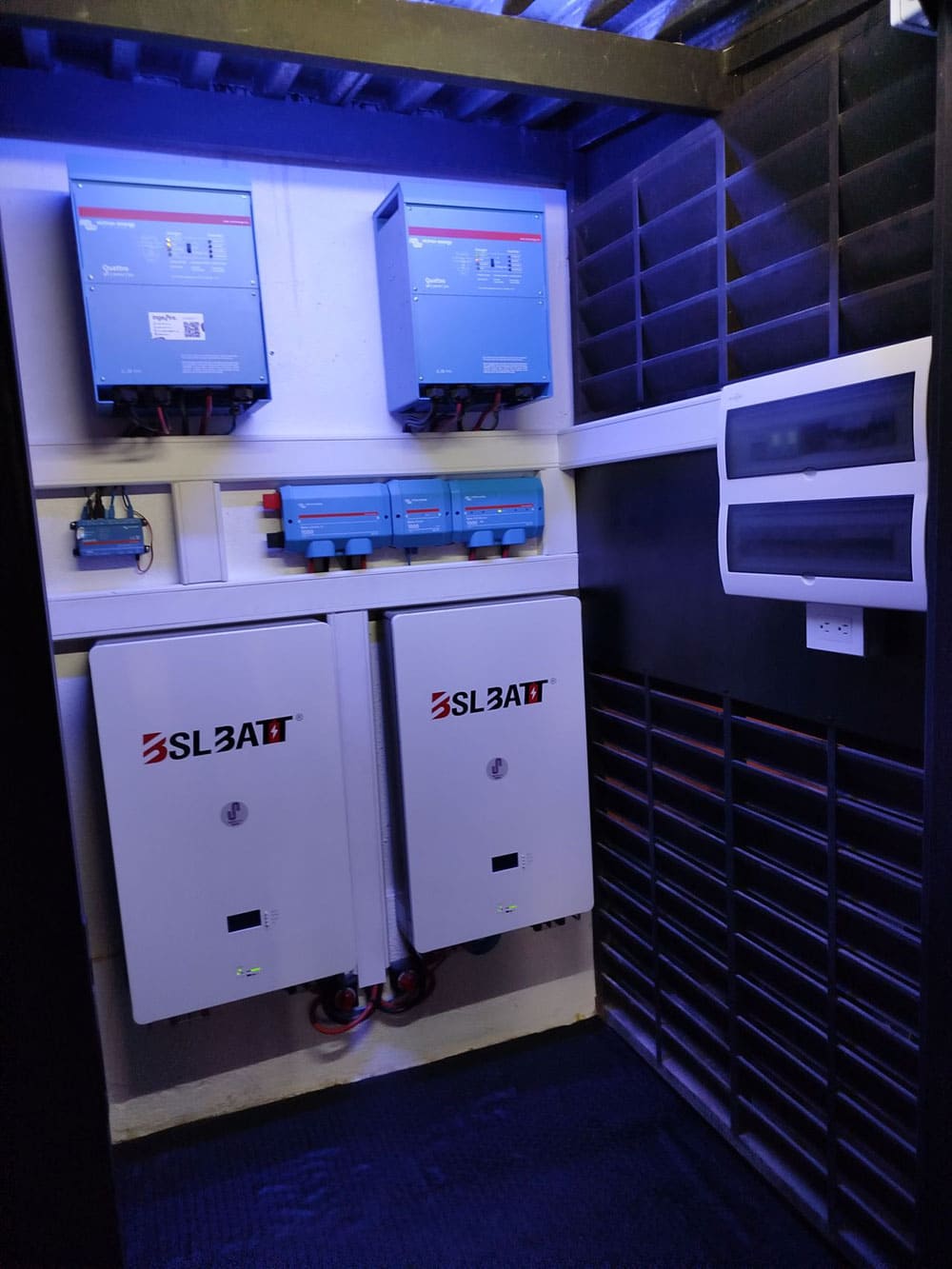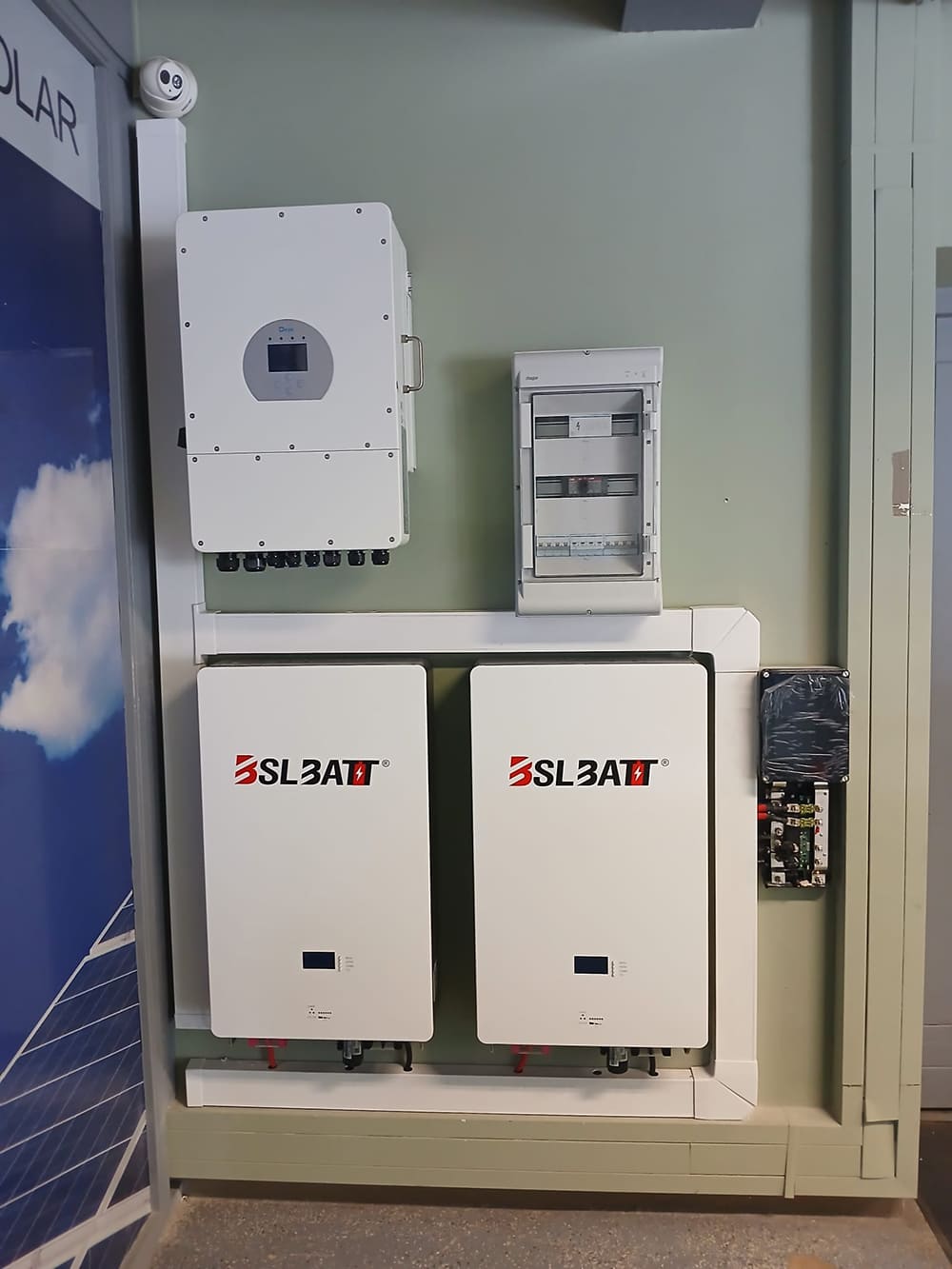AUTHOR BIO
Authored by Aydan, LiFePO4 Battery Technology Specialist at BSLBATT. With over 5 years in the advanced battery industry, He focuses on demystifying battery specifications and empowering users to make informed energy storage decisions. As an LiFePO₄ energy storage battery manufacturer, BSLBATT is committed to providing high-performance and reliable battery solutions.

Combining residential solar power with energy storage is key to achieving energy independence, improving energy efficiency, and addressing grid instability. Lithium-ion batteries, with their high energy density, long lifespan, and excellent cycling performance, have become the technology of choice for residential energy storage. However, successfully and efficiently integrating lithium-ion batteries into existing or new residential solar systems requires a deep understanding of their technical characteristics and key integration considerations.
Why Choose Lithium-ion Battery Energy Storage? — BSLBATT's Technical Advantages
Before beginning integration, let's review the advantages of lithium-ion batteries (particularly the lithium iron phosphate (LFP) solar batteries we specialize in at BSLBATT) over traditional lead-acid batteries, which directly impact system design and performance:
Higher Energy Density: With the same capacity, lithium-ion batteries are smaller and lighter, which is particularly important in residential applications with limited space.
Longer Cycle Life: Lithium-ion batteries typically support thousands of charge and discharge cycles, far exceeding lead-acid batteries. This translates to lower long-term cost of ownership and less frequent replacement.
Higher Depth of Discharge (DoD): Lithium batteries can be deeply discharged, allowing for fuller utilization of their capacity. Unlike lead-acid batteries, where deep discharge significantly shortens their lifespan.
Higher Efficiency: Lithium batteries offer higher charge and discharge efficiency, resulting in lower energy loss, helping to improve overall system energy efficiency.
Lower Internal Resistance: Low internal resistance means faster charging and greater discharge capacity, especially when high power output is required.
Analysis of Key Technical Points in Lithium Battery Integration
Successfully integrating lithium batteries into a residential solar system requires attention to the following technical aspects:
1. Battery Selection and System Matching
Capacity Calculation: First, we need to accurately calculate the required energy storage capacity (kWh) based on the customer's average daily electricity consumption, peak demand periods, and desired backup duration. This typically requires a detailed analysis of the customer's load.
Power Requirements: We also need to consider the system's required discharge power (kW), specifically how many appliances the customer can operate simultaneously. This determines the continuous discharge and peak discharge capabilities of the battery modules or system we select.
Inverter Compatibility: A crucial consideration is that the selected lithium battery system must be compatible with the customer's solar inverter (whether a hybrid or off-grid inverter). We need to confirm that the battery's communication protocol (e.g., CAN, RS485/RS485) interfaces smoothly with the inverter for optimal energy management and monitoring. BSLBATT's battery product line is carefully designed for compatibility with a wide range of major solar inverter brands. Optimizing System Performance with Hybrid Inverters.
Battery Type Selection: LFP (lithium iron phosphate) solar batteries are a preferred choice for residential energy storage due to their excellent safety, long lifespan, and cost-effectiveness. The LFP batteries we offer at BSLBATT are chemically stable and non-flammable, providing enhanced safety for home users.
2. Safe Installation and Environmental Considerations
Installation Location: Lithium-ion batteries have certain operating temperature and humidity requirements. We recommend installing the batteries indoors or in a dedicated battery compartment with good ventilation and a stable ambient temperature (typically between 0°C and 40°C), protected from direct sunlight.
Electrical Connection: The battery's DC output must be properly connected to the inverter's DC input. Ensure all connections are secure and well insulated, and use DC cables and circuit breakers that meet specifications. BSLBATT battery modules are typically designed with clear terminal blocks and comprehensive protection features, but installation must always follow the operating manual.
Communication Cable: Ensuring the battery's communication cable is properly connected to the inverter's communication port is critical for interoperability. Communication interruptions may prevent the inverter from reading the battery status, affecting energy management efficiency.
Fire Prevention and Insulation: Although LFP solar batteries are highly safe, as integrators, we must still adhere to electrical installation safety regulations, ensure the battery system has good insulation, and consider equipping the installation area with appropriate fire protection equipment.
3. System Optimization and Performance Improvement
BMS Role: BSLBATT's lithium-ion batteries are equipped with an advanced battery management system (BMS). The BMS not only provides safety monitoring but also plays a key role in energy optimization:
1. Accurate State of Charge (SOC)/State of Health (SOH) Estimation: The BMS accurately tracks the battery's remaining capacity (SOC) and state of health (SOH). This directly impacts energy management strategies, such as when to charge and discharge, and how much power can be safely delivered.
2. Balancing Management: Cell balancing ensures consistent voltage and state of health across all battery cells, preventing overcharge or over-discharge of individual cells and maximizing the overall capacity and lifespan of the battery pack.
3. Cooperation with the Inverter: Once the battery and inverter are successfully communicating, the optimal charge and discharge strategy can be configured through the inverter's configuration interface or the BSLBATT monitoring app/platform.
This includes:
Prioritize Self-Use: Ensures that solar power is used to meet the home's immediate electricity needs, with any remaining power used to charge the battery.
Peak-Off-Peak Arbitrage: In areas with tiered electricity pricing, we set charging times during off-peak hours and discharging times during peak hours, based on the grid's pricing strategy, to save users money.
Backup Power Mode: In the event of a power outage, the system automatically switches to off-grid mode, with the battery supplying critical loads.
Data Monitoring and Analysis: Regularly monitor battery operating data, such as charge and discharge current, voltage, temperature, and cycle count, using the monitoring platform. This helps us identify potential issues and fine-tune system parameters based on actual operating conditions for optimal performance and lifespan.
4. BSLBATT Support and Guarantee
At BSLBATT, we understand that as a system integrator, you need reliable products and professional technical support. Our lithium-ion battery products undergo rigorous quality control and safety testing before leaving the factory and come with a comprehensive warranty. We're always ready to share the latest technical information, installation guides, and system configuration recommendations to help you complete every residential solar-liquid storage project more easily and successfully.
Conclusion
Successfully integrating lithium-ion battery energy storage into residential solar systems is a key way to enhance system value and customer satisfaction. By deeply understanding the technical characteristics of lithium-ion solar batteries, paying attention to safe installation details, and effectively leveraging the coordinated optimization capabilities of the BMS and inverter, we can create high-performance, highly reliable green energy solutions for our customers.
We look forward to working with all our energy storage system integrator partners to promote the widespread adoption of clean energy!
ABOUT BSLBATT
BSLBATT is a leading lithium battery storage manufacturer specializing in providing high-quality, high-performance LiFePO4 energy storage batteries to customers worldwide. Through innovative battery technology, we are committed to supporting the development of green energy sectors such as solar power, residential energy storage, and commercial and industrial energy storage, contributing to a sustainable future.
Post time: Jul-31-2025










